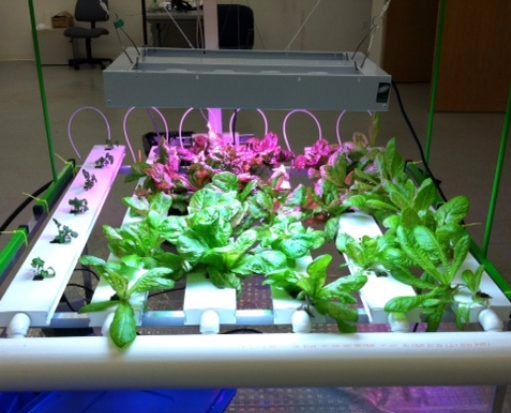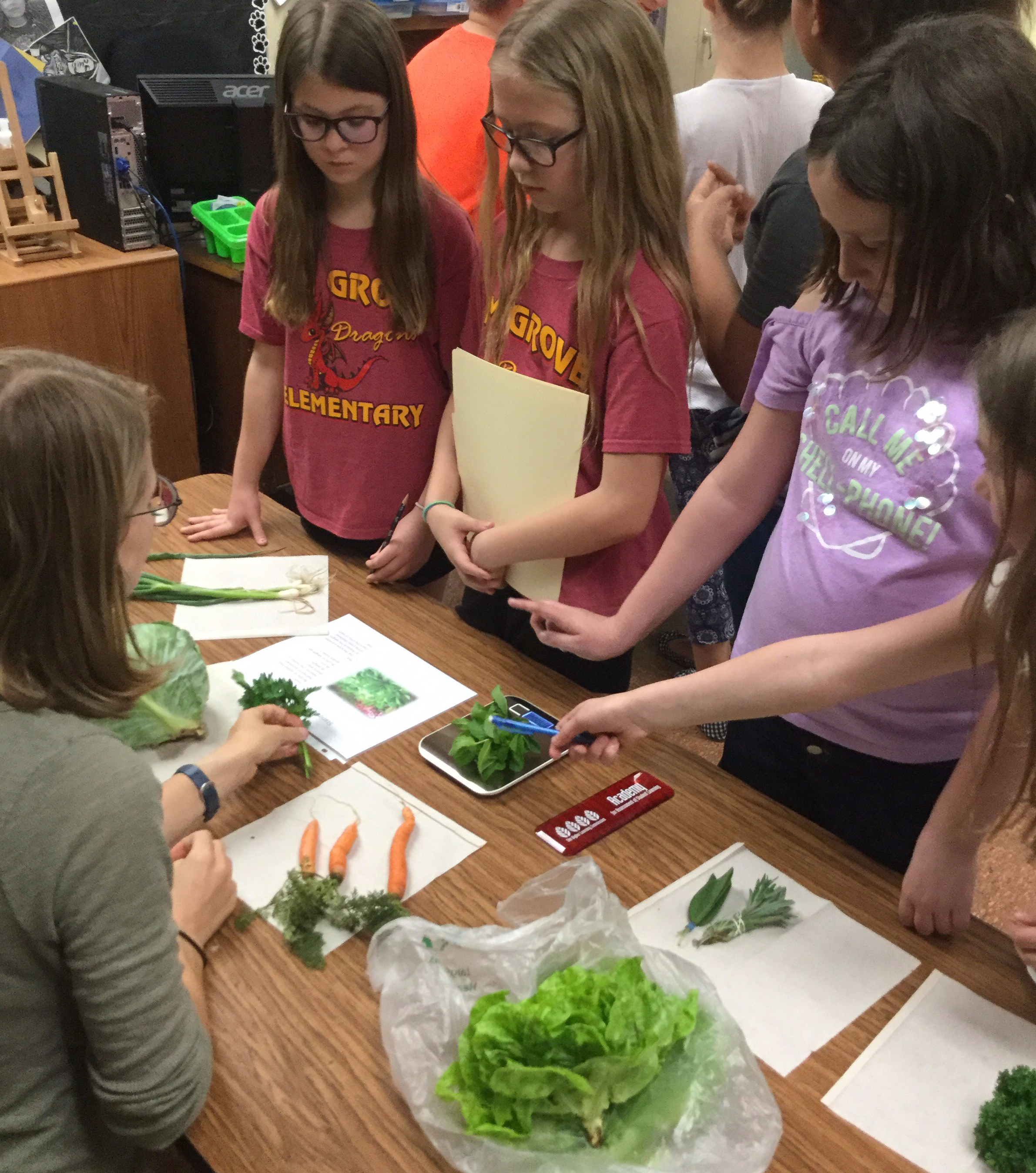With funding from NASA West Virginia Space Grant Consortium (NASA WVSGC), students and teachers in five Ohio County schools will be collaborating with a local entrepreneur to create and publish a hydroponics handbook. PLANTS, LLC received funding from NASA WVSGC K-12 Professional and Curriculum Development Program to create a Hydroponics in Schools Handbook. Students and teachers who have used hydroponics systems in their classrooms provided by previous project funding will contribute first-hand knowledge and case reports demonstrating what they’ve learned their hydroponics systems.

The digital publication will include science, technology, engineering, and mathematics (STEM) lessons as well as first-hand insights about crop production based on the hydroponics activities that take place at the five school sites. The Hydroponics in Schools Handbookwillbuild on existing equipment and curriculum provided to lead teachers at each school site. A unique challenge of incorporating hydroponics into STEM learning is to make sure that teachers are involved in planning how they will use hydroponics to enhance classroom learning.
Funding for the collaborative development of the handbook will allow PLANTS to bring in subject matter experts in organic chemistry, plant science, ecology systems, and hydroponics systems to provide expertise in horticulture and system design. The subject matter experts will also contribute to the development of content-related lessons. The project will also incorporate expertise from its partner, Grow Ohio Valley, as experts in agriculture production and urban farming practices.
While students are learning about hydroponic systems for crop production, the PLANTS CEO, Dr. Laurie Ruberg, will provide teachers with assessment tools to measure student learning about plant physiology, hydroponic system design, quantitative tracking of plant growth, harvest yields, and nutrient requirements. The assessments will provide feedback to help students self-assess their progress in operating their hydroponic system.
 The development of the hydroponics handbook has a one-year timeline with these targets:
The development of the hydroponics handbook has a one-year timeline with these targets:
- Survey each of the five school teams to find out what worked well for them this year, what they plan to continue, and what changes and enhancements they’d like to add to their hydroponics activities for the 2019-2020 academic year, site constraints, and timeline for implementation of curriculum for each site.
- Develop curriculum and assessment materials for each school site and share in Google Docs site.
- Conduct hands-on training on data collection tools and curriculum and assessment materials for teachers and students at each site.
- Work with site teacher-leaders to implement curriculum at each site with team observation and student feedback surveys.
- Compile evaluation data collected from all five sites.
- Share draft of Hydroponics in Schools Handbook via Google Docs.
- Make revisions to handbook and complete final report for WV Space Grant Consortium.
PLANTS, LLC leads the development of the Hydroponics in Schools Handbookunder the direction of its principal, Dr. Laurie Ruberg, who brings a long history of curriculum development and program evaluation to this project. Ruberg’s work with PLANTS education outreach has involved introducing hydroponics to three school districts in western Pennsylvania and two schools in Monongalia County to support STEM education. This project uses the existing school-based hydroponic systems to guide STEM teaching activities at each site.
An important component of the Hydroponics in Schools Handbook is the evaluation, which will measure the number of students and teachers served, mastery of learning objectives, and strategies schools use to make hydroponics a sustainable component of their STEM curriculum. Since this project focuses on the integration of hydroponics as a STEM learning and food production tool, the curriculum development will include lessons that address nutrition, healthy eating, food resource management, food safety, as well as STEM topics teachers request for their students.
Those interested in learning more about this project can contact Dr. Ruberg by email at plantlessons@gmail.com.
